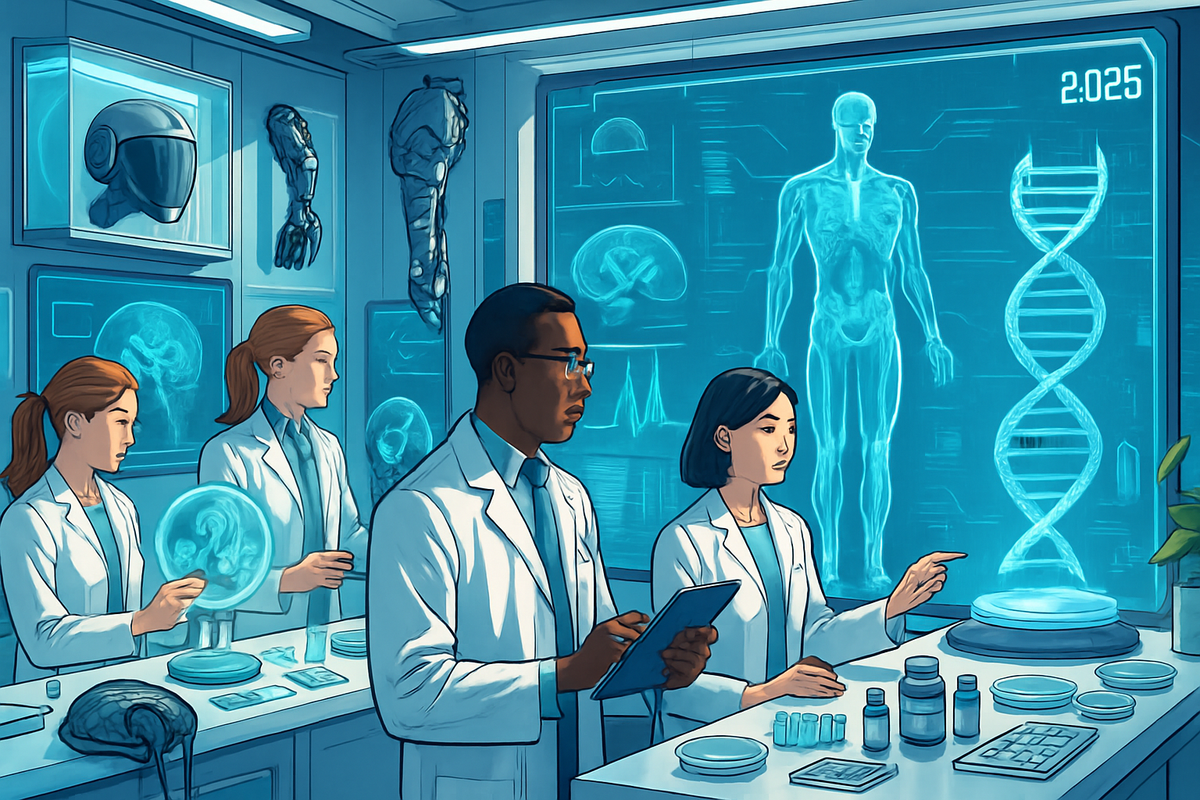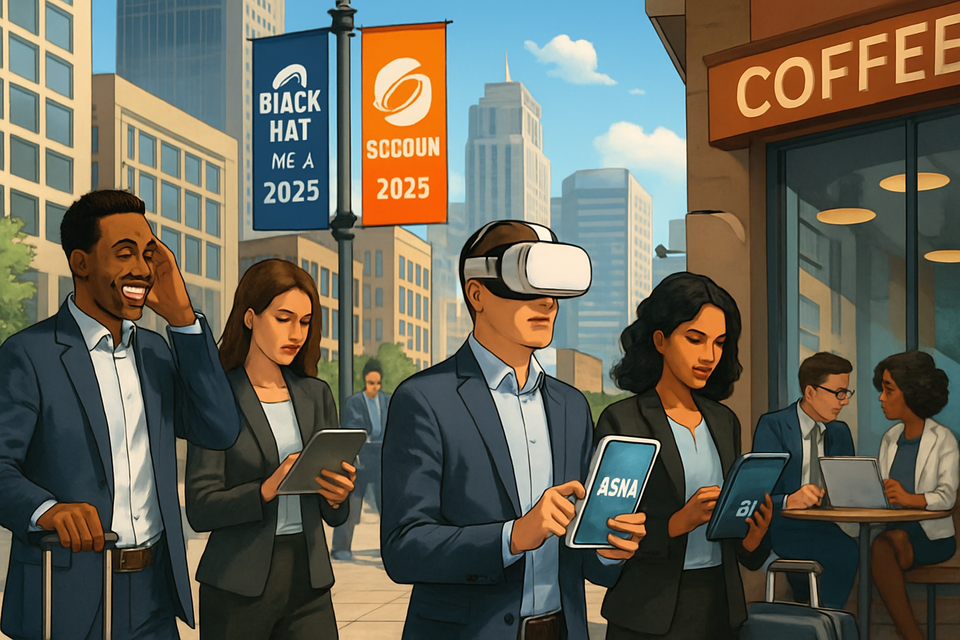The Augmented Human: A Deep Dive into 2025’s Biggest Human Enhancement Breakthroughs
Explore human enhancement, where sci-fi meets reality—CRISPR, brain-computer interfaces, and everyday biohacks reshape life by 2025. Embrace the opportunities, navigate the risks, and dive into a future where innovation and ethics collide.

Welcome to the Era of the Augmented Human
Imagine a world where you can boost your mind with a pill, edit your DNA like a Word doc, or control your laptop with a mere thought. In 2025, these aren’t just sci-fi fantasies—they’re billion-dollar realities, and they’re coming faster than your last espresso rush.
“We have the ability to rise above the fragility of our biology. We can become something more.”
— Aron D’Souza, President of the Enhanced Games
The world’s boldest thinkers and biggest investors are racing to turn human enhancement from fringe fantasy into everyday fact. But what’s hype, what’s real, and what does it mean for you? Let’s take a smart, slightly irreverent journey through the breakthroughs, the risks, and the wild new frontier of being human in 2025.
CRISPR, Gene Editing & Biological Rewrites
Gene editing—once the stuff of comic book origin stories—has gone mainstream, thanks to tools like CRISPR and a global surge in biotech investment. Harvard’s George Church and startups like Rejuvenate Bio are leading the charge, using gene therapies in animals to reverse aging and regenerate tissue. Human trials are on the horizon, and a handful of experimental clinics (hello, Próspera!) are already offering unapproved therapies to globe-trotting biohackers.
- What’s new in 2025? Human enhancement clinics in regulatory gray zones. Billionaire-backed companies aiming to delay aging, boost muscle, and even tweak intelligence.
- Risks? Most gene editing for healthy people is still experimental. Long-term effects? Unknown. “Forever young” might just mean “forever guinea pig.”
Still, the promise is huge: Imagine erasing hereditary disease, building muscle with a shot, or extending your healthspan by decades. The science is real, but the ethics—and the hype—are wilder than ever.
Brain-Computer Interfaces: Mind Over Matter
Elon Musk’s Neuralink and a host of neurotech startups have made brain-computer interfaces (BCIs) the hottest (and most controversial) trend of 2025. These devices range from wearable headsets that stimulate brainwaves for better focus, all the way to surgically implanted chips that let paralyzed users move cursors—and, in some animal studies, even control drones—using pure thought.
- What’s new? Real-world demonstrations: paralyzed patients using BCIs to communicate and interact online. The NHS in the UK is piloting wearable neurostimulation for depression and ADHD.
- What’s next? Tech leaders envision BCIs for everyone—offering memory boosts, instant language learning, and “mental fitness” apps. But privacy and mind-hacking fears loom large.
“If BCI tech can read your thoughts, who owns your mind?”
— The 2025 Neuroethics Panel
Supplements, Nootropics, and Bio-Monitoring: The Everyday Upgrade
Not ready for gene therapy or a brain implant? Welcome to the vast, sometimes wild, world of biohacking from your kitchen table. From NAD+ boosters and nootropics (brain supplements) to wearable glucose trackers and sleep-optimizing rings, the market for “everyday enhancement” has exploded.
- Market size? The global supplement and wearable tech market is now worth over $500 billion, with nootropics and metabolic wearables leading the charge.
- Celebrity factor: Silicon Valley icons and viral influencers tout customized stacks of pills, strict diets, and data-driven routines in pursuit of perpetual youth and peak performance.
- What works? Some supplements (like creatine, vitamin D, and certain nootropics) have decent science behind them. Others? More hype than help—use critical thinking and always consult a pro!
Regulatory Revolutions & Ethical Quagmires
The regulatory landscape is shifting as fast as the tech. With “enhanced” Olympics, billionaire-funded clinics, and a new generation of self-experimenters, governments are racing to define what’s legal, what’s safe, and what’s just plain bonkers.
- In the US: The FDA is piloting its first anti-aging drug trial (TAME, using metformin). Some officials are pushing for looser rules on enhancement for healthy people.
- Globally: “Biohacking tourism” is booming, with countries like Honduras briefly opening regulatory loopholes for radical therapies—before facing political pushback.
- Big question: Where’s the line between health, enhancement, and eugenics? The debate is as heated as it gets.
“Enhancement is a human right—or a dangerous distraction from real health needs?”
— Global Bioethics Forum, 2025
What It Means for Work, Aging, and Daily Life
So, how will all this tech shape your career, your health, and your sense of self?
- Work: Enhanced cognition and focus could supercharge productivity. But if the boss can see your “brainwaves,” privacy and burnout are real concerns.
- Aging: The dream of living longer, healthier lives is within reach—but so are new inequalities if enhancement is only for the wealthy or well-connected.
- Daily life: Expect a future where bio-monitoring is as routine as brushing your teeth. But beware of over-optimization—sometimes, good old-fashioned rest is the best hack of all.
Takeaway: The Human Adventure Is Just Beginning
2025 is the year human enhancement left the lab and entered your living room. The opportunities are wild, the risks are real, and the ethical debates are just heating up. Will you be a pioneer, a skeptic, or a cautious explorer?
Want more in-depth guides, bold reporting, and smart community discussion on the future of being human?
Subscribe for free to become a Funaix Insider — Only subscribers can join our exclusive comments and discussion threads. It’s free (for now) and smarter than ever.
Sources: Forbes Business Council, The Lensage, DigitalSolley, Accio, Reuters. All information current as of August 18, 2025.
Have a burning question or a bold opinion? Subscribe and join the Funaix conversation—because the future of humanity is too important (and too fun) to leave to the algorithms alone.




